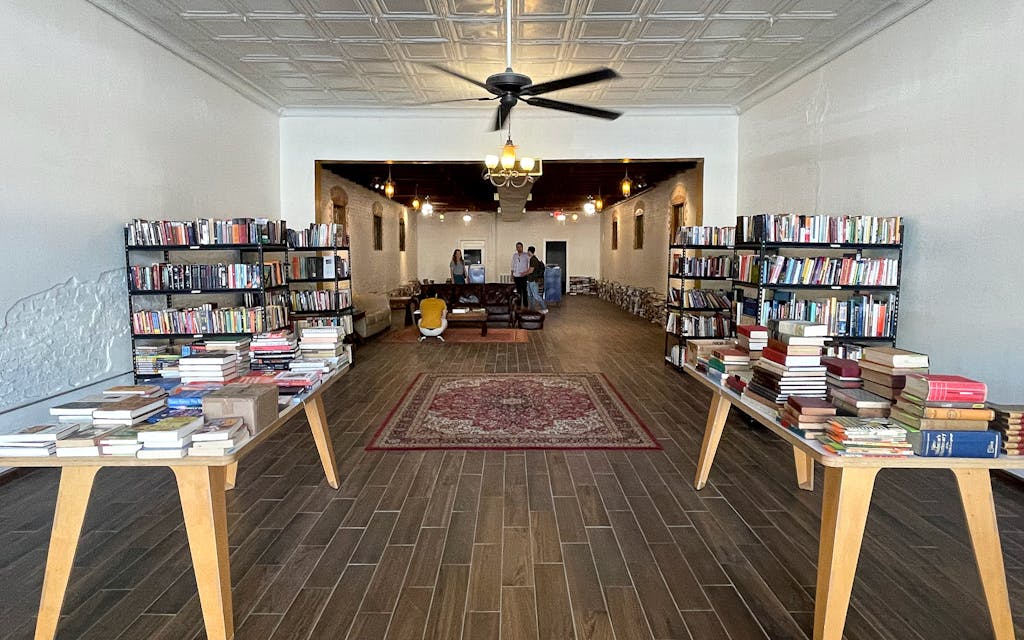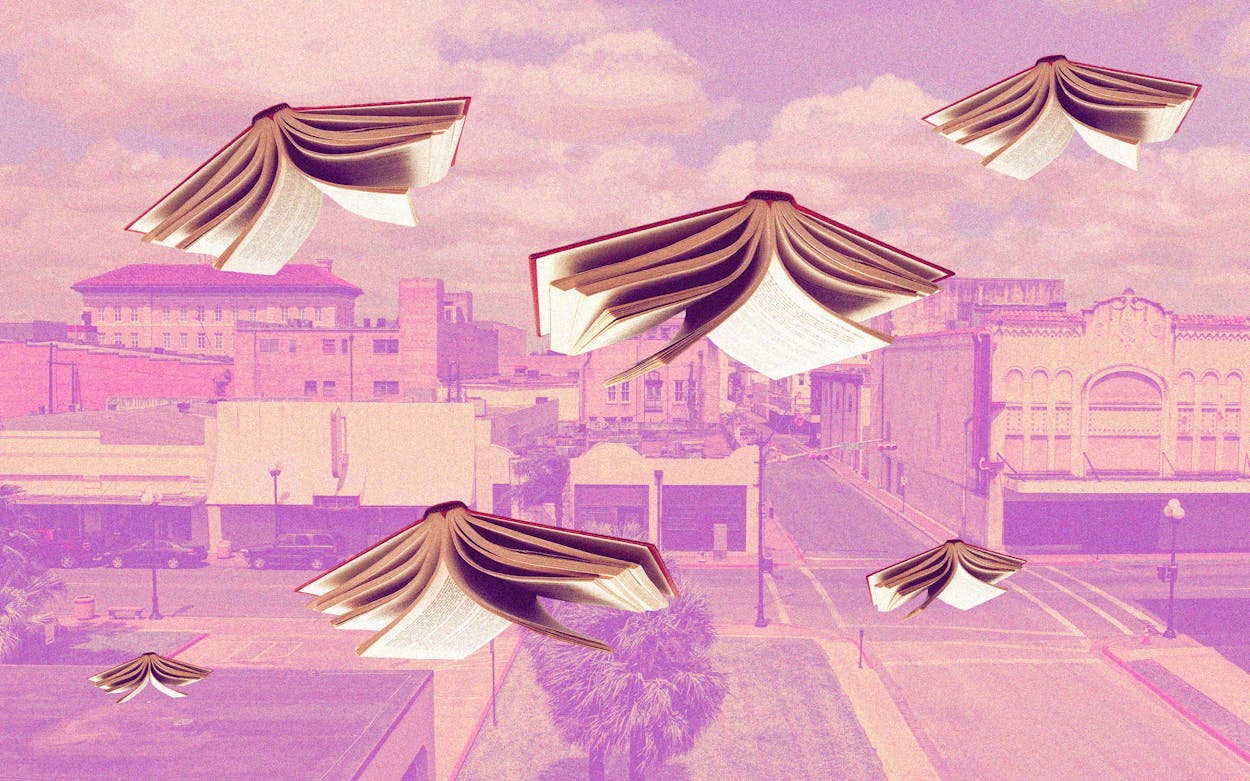A year ago, Brownsville resident Gilbert Hernandez pulled an all-nighter. He wanted to figure out why his hometown didn’t have a bookstore.
“I pulled up a list of U.S. cities by population and Google Maps,” he says. With tools in hand, he went city by city and discovered that Brownsville, the historic town with a current population of about 187,000, was a book desert.
According to his research, “it turns out that there are six cities larger than Brownsville without bookstores, but they exist in dense metropolitan areas,” Hernandez says. “The largest city on that list is North Las Vegas. If you live in North Las Vegas, where are you going to drive? Just ten minutes down the highway to Vegas.”
Though Brownsvillians have two branches of a public library to choose from, the closest traditional bookseller is forty minutes away in Port Isabel. Sure, there are the Christian bookstore in north Brownsville and the campus bookstore at UTRGV, but those serve niche audiences. There is nowhere for thirsty readers to go to purchase new, diverse titles.
Fed up, Hernandez began doing pop-ups as Búho (“owl” in Spanish), selling donated and secondhand books to local residents at community events. The business became popular—especially with kids—and in less than a year, Búho snagged a physical location in downtown Brownsville. “I want to give Brownsville the bookstore it deserves,” Hernandez says. “I have this vision in my mind. I want antique bookshelves against the walls, double-sided bookshelves in the middle, and local art hanging on the walls.”
The border town—which may soon launch rockets to Mars—wasn’t always so bookless. Natives may recall a time when Waldenbooks, located in Sunrise Mall, satiated young readers in Brownsville with that inquisitive itch. “I think I went there mostly for the Goosebumps books,” says Victor De Los Santos, who now runs the nonprofit South Texas Astronomical Society. The location closed twelve years ago, and no store of similar proportions popped up to replace it—until now.
This January, De Los Santos and other volunteers joined Hernandez to sort through hundreds of titles at the soon-to-be Búho brick-and-mortar on East Washington Street. Essay, fantasy, philosophy, romance, sci-fi, self-help—just like Brownsville, Búho’s selection will be flavorful and community-first. Hernandez plans to have a whole section dedicated to local authors and local history, as books about Brownsville tend to fly off the shelves. “The idea here is to allow the people here to see the progress develop before their eyes,” says Hernandez, who intends to have consistent pop-ups in the space before the store’s official grand opening later this year. “Right now I have some garage storage racks, but they will have to do.” He’s already planning to add a cafe during the eventual Búho “phase two.”

Hernandez’s eagerness makes me befuddled as to how this establishment marks a first for the community in over a decade. Some locals speculate it has to do with low literacy rates, making mainstream bookstores like Barnes & Noble not want to set up shop. “That has been the prevailing excuse around town,” Hernandez tells me. Others blame low income.
Hernandez, who sits on the board of the Brownsville Historical Association, begs to differ. “Brownsville is too poor for a bookstore? Well, our books are very reasonably priced. They average from three to seven dollars.” The shop will have new and classic titles, aiming for a diverse set of shelves to match each curious new reader with the perfect fit. “It’s not that they’re uneducated; it’s that they haven’t found the right place to start.”
Búho’s location also represents a return to form. Forty years ago, downtown Brownsville was the place to be. Locals would go to the Majestic Theatre or maybe buy a three-piece suit on Elizabeth Street. Mexican nationals would cross the border from Matamoros and spend their disposable income on clothes and fun. Then, when the peso became devalued in the late twentieth century, Mexican shoppers stopped contributing to the livelihoods of downtown’s small businesses. Many of them shut down, and places like Sunrise Mall and Amigoland Mall gained prominence.
In the past two years, though, the number of locally owned small businesses has skyrocketed in downtown Brownsville. Elon Musk has tapped the region as our portal into the future. Organizations like the Brownsville Community Improvement Corporation are providing grants and subsidies to encourage the revitalization, including by funding renovations for the historic building in which Búho will be housed. The shop’s existence, and residents’ fervor for the long-overdue literature hub, signals an overall shift.
Brownsville has historically had a “crabs in the bucket mentality,” Hernandez says. “The idea is that if you put a bunch of crabs in a bucket, if one tries to climb out, the other crabs will drag it back down.” It rings true to me as a part-time Brownsvillian—many locals will note the city’s reputation as a place to get away from, but one with a characteristic stickiness that makes it hard to leave behind. “My [community] would much prefer to support small businesses as opposed to larger corporations,” Hernandez remarks.
Still, the presence of SpaceX is responsible for a new energy in the air—one that Hernandez plans to take full advantage of. In such self-sustaining, idiosyncratic ecosystems, sometimes all it takes is one motivated dissident to shake things up. With Búho, Hernandez wants to ensure Brownsvillians are ready for this exciting next chapter by providing a center for learning and exploration. An abundant oasis in the book desert.
- More About:
- Books
- Brownsville






